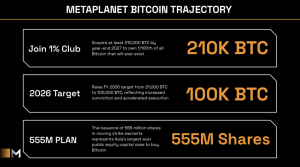Image source: Blocto
The multichain wallet provider Blocto is building on its recent integration with the Aptos blockchain with the launch of a $3 million ecosystem fund that’s intended to help new Aptos-based projects grow their user bases.
Blocto is a popular, cross-chain smart contract wallet that provides features designed to ease problems around private key management, complicated wallet addresses and high transaction fees. The Blocto wallet supports hundreds of different cryptocurrency tokens, as well as non-fungible tokens (NFTs) and other digital assets across a range of popular blockchains, including Ethereum, Solana, BNB Chain, Polygon, Tron and Flow.
One of Blocto’s stated aims is to make it easier for people to engage in the emerging Web3 ecosystem, which it does with features such as email logins and universal gas fees.
Support for Aptos was announced last month, and Blocto claims that it onboarded more than 300,000 new users within the first week.
Aptos is an up and coming Layer-1 blockchain for We3 platforms that’s built on the foundations of Diem, a project originally created by Facebook parent company Meta Platforms. Diem was widely regarded to hold a lot of promise, only for Meta to scrap the project due to regulatory concerns. With Aptos, Diem has effectively been reborn. As with Diem, the key advantage of Aptos is its Rust-based programming language Move, which differs from the better-known Solidity in the way it handles assets separately, as resources. Because of this, Aptos is able to provide higher security and more fairness, and better performance for a range of decentralized applications.
One of the reasons why Aptos has generated so much excitement is the incredible backing it has received from the venture capital community. In March it raised $200 million in funding from Andreesen Horowitz and others, before closing on a second, $150 million round in July led by FTX Ventures and Jump Crypto.
Blocto claims to be able to onboard new Aptos users and help them set up a wallet in as little as 30 seconds. Its decision to support Aptos was based on a DAO community vote. At the time, Blocto said it is a big believer in Aptos’ vision of creating the safest and most performant blockchain in the world, and wants to help the project succeed in that goal.
With that in mind, Blocto’s new ecosystem fund for Aptos makes a lot of sense. In a statement, the company said it will support standout Aptos projects during the challenging “user acquisition” phase. It’s not only funding that projects will be able to receive. In addition to the $3 million pot, Blocto will also provide expertise and assistance via its own community of developers, together with financial marketing support, communications and access to its investor base. In this way, Blocto believes it will be able to help select Aptos projects grow much more quickly, attract new users and with that, foster growth within the wider Aptos ecosystem.
Blocto co-founder and CEO Hsuan Lee said his team had been on the lookout for promising blockchain ecosystems with long-term growth potential, and that Aptos was the one that caught its attention. “It aims to make blockchain accessible for average users – a big focus for us at Blocto – and has accumulated a lot of momentum in the dev community, even in the current market situation,” he said.
As Aptos’ user base grows, Blocto hopes that its wallet will become a key component of its ecosystem. Thanks to its integration with Aptos, Blocto enables users to deposit, withdraw and swap Aptos tokens and NFTs, stake Aptos tokens and more. Users also have the choice of making their wallet non-custodial, meaning they control their own security, or custodial, a feature that allows them to create a key recovery mechanism.
Lee added that he was extremely bullish about Aptos and the wider Web3 ecosystem, despite the current bear market conditions.
“We know this bearish market is the best time to build and refine products in preparation for the next wave of crypto adoption,” he said. “Historically, those projects continuing development during downturns create the most impact when sentiment reverses.”
Disclaimer: This article is provided for informational purposes only. It is not offered or intended to be used as legal, tax, investment, financial, or other advice





















